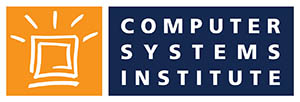The IT industry is dynamic and full of opportunities, but launching or advancing a career in this field can be overwhelming if you’re unsure of where to begin. Exploring the professional certifications available in this sector is a good starting place. CompTIA certifications are highly respected by IT professionals and recruiters and can provide a strong foundation, whether you’re just starting out or looking to specialize.
So, how do you determine which CompTIA certification is right for your future? Identify what each certification offers, and pursue the one that best matches your career goals.
What Are CompTIA Certifications?
CompTIA (Computing Technology Industry Association) certifications are vendor-neutral credentials that validate your skills in IT. Covering wide-ranging topics, from foundational IT knowledge to advanced cybersecurity, they provide a structured pathway to help IT professionals build their careers. Because they don’t focus on one specific software vendor, they apply to a wide variety of systems and technologies, making them versatile and highly valued by employers.
CompTIA A+: For Beginners Entering the IT Field
CompTIA A+ is often considered an entry point into the world of IT because it targets those who are just starting out and want to gain hands-on skills in troubleshooting and problem-solving. Focusing on hardware, operating systems, and basic networking, it equips you to handle essential IT roles such as help desk support or technical support specialist.
One key benefit of the A+ certification is its emphasis on practical, real-world scenarios. The exam challenges you with performance-based questions that mirror situations you could encounter on the job, such as diagnosing hardware failures or configuring devices.
CompTIA Network+: The Next Step in Your Knowledge
After gaining a foundation with the A+ certification, advance to CompTIA Network+. This certification focuses on networking concepts, including design, configuration, and troubleshooting. Aimed at professionals interested in roles such as network administrator or network technician, it’s especially valuable if you plan to work in an environment where connectivity is a critical focus.
Network+ differs from A+ by zeroing in on creating and maintaining network infrastructure. It covers wired and wireless networks, network security, and specific protocols. The exam might require you to calculate subnets, which is a fundamental skill in network management, or troubleshoot connectivity across devices.
This certification appeals to problem-solvers who enjoy piecing together systems and ensuring uninterrupted communication. It’s also highly relevant as organizations continue to expand their reliance on cloud and hybrid networks.
CompTIA Security+: Laying a Cybersecurity Foundation

Cybersecurity is one of the fastest-growing fields in IT, and the demand for skilled professionals continues to climb. CompTIA Security+ is ideal for those seeking to establish a career in this field. Many see it as the baseline certification for roles such as cybersecurity analyst, systems administrator, and IT auditor.
Security+ addresses a wide range of topics, including access controls, risk management, threats and vulnerabilities, and encryption. It requires candidates to demonstrate their ability to secure systems and networks.
This certification is beneficial for those interested in pursuing compliance-focused roles or protecting organizations against cyberattacks. With cybersecurity breaches becoming increasingly complex and frequent, Security+ ensures you understand the foundational skills necessary to mitigate risks.
CompTIA Microsoft Concentration: Bridging Two Pillars of IT Knowledge
The CompTIA Microsoft concentration provides a unique opportunity to combine two trusted names in IT. This program focuses on preparing students for CompTIA certifications and Microsoft-specific credentials, giving you a competitive edge in environments that rely on both.
Once you know which CompTIA certification is right for your future, consider obtaining it through an institution that sets students up for career advancement after graduation. Students who acquire the CompTIA Microsoft certification at Computer Systems Institute (CSI) will become proficient in the installation and administration of Windows Server and other Microsoft-based systems.
The curriculum complements CompTIA certifications by emphasizing server configuration and deployment and ensuring the seamless integration of Microsoft technologies within broader IT networks. This combination is especially compelling for individuals aiming to advance into system engineering or network management roles. The dual focus ensures you’re not only versed in foundational IT principles but also capable of applying them to widely used tools in the industry.
The program caters to professionals committed to building a career in environments where Microsoft technologies intersect with broader IT infrastructure. It’s a practical step for anyone already considering Network+ or Security+ certifications who wants deeper expertise in Windows environments.
Comparing Certifications to Your Career Goals
To choose the right certification, start by considering your career aspirations. If you aim to gain an initial foothold in the IT world, CompTIA A+ is the ideal starting point. If you’re leaning toward roles centered on connectivity, Network+ will help you tackle the challenges of network design and troubleshooting.
For those interested in protecting data and systems, Security+ is the clear choice. Meanwhile, if your focus lies in mastering Microsoft applications and creating advanced server solutions alongside foundational IT skills, the CompTIA Microsoft concentration stands out as a unique option.
When mapping out your career, consider the project types and industries that appeal to you. For example, Security+ may appeal to someone interested in the finance or health care industries that will handle sensitive data. Similarly, pairing IT knowledge with expertise in Windows environments could position you for careers within organizations that fully integrate Microsoft tools into their operations.
The Value of CompTIA for Employers

CompTIA certifications are valuable to employers because they ensure candidates have verified, up-to-date knowledge in key areas of IT. Plus, they apply to a broad range of systems and environments, which is particularly attractive to businesses with varied infrastructure.
For example, a candidate with a Network+ certification demonstrates an ability to set up, sustain, and optimize a network regardless of the hardware or software involved. Likewise, Security+ reassures companies their employee has a foundational understanding of securing systems against threats.
Preparing for Your CompTIA Certification
Success in these exams requires a well-structured plan. Many candidates go for courses or boot camps to cover all topics thoroughly and provide access to practice exams. CSI offers programs tailored to specific certifications, ensuring that students meet the necessary requirements and enter their exams confidently.
Active hands-on experience is also crucial. Whether through internships, lab simulations, or personal projects, applying the concepts you learn reinforces your knowledge and ensures readiness for real-world scenarios.
Start Your Certification Journey Today
Ultimately, the right CompTIA certification depends on your current experience and where you want to take your career. Whether you’re gaining foundational skills with CompTIA A+, exploring networking with Network+, securing systems with Security+, or advancing with the CompTIA Microsoft concentration, there’s a path that can match your aspirations.
The key is to align your efforts with certifications that validate your knowledge and encourage you to grow in the areas that matter most to your long-term goals.







